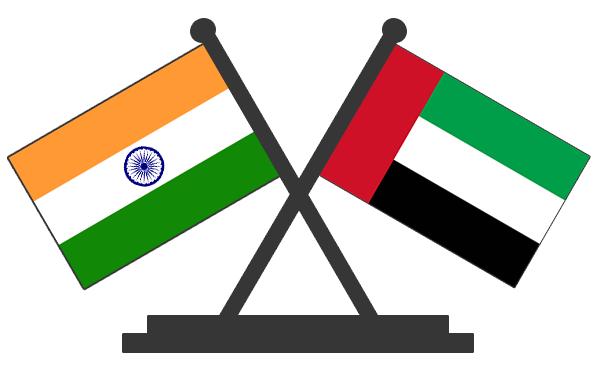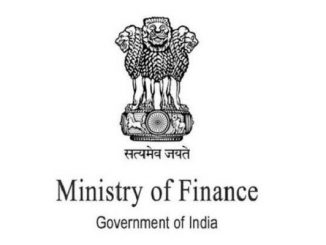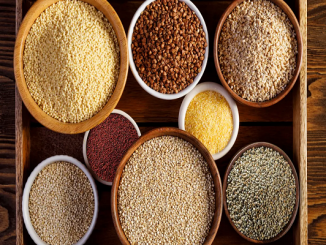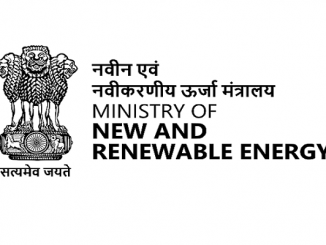
Feb 03: As a part of its series of sensitization programmes that are aimed at promoting the export of millets and its value-added products, the Agriculture and Processed Food Products Export Development Authority (APEDA) today organised a Virtual-Buyer Seller Meet to harness export opportunities in United Arab Emirates (UAE).
The Buyer Seller Meet was organized in association with Indian Mission in UAE under the leadership of the Indian Ambassador to UAE Shri Sanjay Sudir.
APEDA, which works under the Ministry of Commerce & Industry, is working in tandem with different stakeholders to accomplish the vision of Hon’ble Prime Minister Shri Narendra Modi to promote the consumption of millet worldwide.
On the occasion, the APEDA also launched an e-Catalogue for the UAE which contains information on various Indian Millets and the range of their value-added products available for export, a list of active exporters, start-ups, FPOs and importer/retail chain/hypermarkets, etc.
The e-Catalogue for U.A.E has been circulated to the Indian Embassy and potential importers, exporters, start-ups and other stakeholders in the Millet supply chain.
During the buyer-seller meeting, several importers, exporters, Start-ups and other stakeholders in the Millet supply chain participated and interacted with each other to explore the export opportunities of Millet and its value-added products.
Noting that India has always been a trusted partner of UAE, Indian Ambassador Shri Sanjay Sudir said that there are huge export opportunities for Indian millet and its value-added products to UAE and other markets in the region.
Speaking on the occasion, APEDA Chairman M Angamuthu said, “It’s a Mission and Vision of Hon’ble Prime Minister Shri Narendra Modi to promote Millets in the international market. The APEDA team is ready to provide all required help to exporters, millet producers, women FPOs, etc to promote Indian millets across the globe.”
Stressing on coordinating with buyers, sellers, and producers, to take forward the export of millets and value-added products of millets, Angamuthu said, “It’s a good opportunity to boost our exports as India has very distinctive traditional varieties of millets which are loved by health-conscious people. The export of millets will help in increasing the income of farmers.”
APEDA has also planned to organize millet promotional activities in South Africa, Dubai, Japan, South Korea, Indonesia, Saudi Arabia, Sydney, Germany, the United Kingdom and the United States of America by facilitating the participation of different stakeholders from India in some of the significant food shows, Buyer Seller Meets and Road Shows.
As part of the promotion of Indian millets, APEDA has planned to showcase millets and its value-added product at various global platforms such as Gulfood 2023, Foodex, Seoul Food & Hotel Show, Saudi Agro Food, Fine Food Show in Sydney (Australia), Belgium’s Food & Beverages Show, Germany’s BioFach and Anuga Food Fair, San Francisco’s Winter Fancy Food Show, etc.
India is one of the leading producers of millet in the world with an estimated share of around 41% in global production. As per FAO, world production of millets in the year 2020 was 30.464 million metric tonnes (MMT) and India’s share was 12.49 MMT, which accounts for 41% of the total millet production. India recorded 27% growth in millet production in 2021-22 as compared to millet production in the previous year was 15.92 MMT.
India’s top five millet-producing states are Rajasthan, Maharashtra, Karnataka, Gujarat and Madhya Pradesh. The share of export of millet is nearly 1% of the total millet production. Exports of millets from India include mainly whole grain and the export of value-added products of millets from India is negligible.
However, it is estimated that the millets market is set to grow from its current market value of more than USD 9 billion to over USD 12 billion by 2025.
The government is also mobilizing start-ups for export promotion of value-added products in the Ready to Eat (RTE) and Ready to Serve (RTS) categories such as noodles, pasta, breakfast cereals mix, biscuits, cookies, snacks, sweets, etc.
As per the government’s millet promotion strategy, major international retail supermarkets like Lulu group, Carrefour, Al Jazira, Al Maya, Walmart, etc. would also be roped in to establish millet corners for branding and promotion of millets.
As per the DGCIS data, India registered a growth of 8.02% in the export of millets in the financial year 2021-22 as the export of millets was 159,332.16 metric tonne against 147,501.08 metric tonnes during the same period last year.
India’s major millet exporting countries are U.A.E, Nepal, Saudi Arabia, Libya, Oman, Egypt, Tunisia, Yemen, the U.K and the U.S.A. The varieties of millets exported by India include Bajra, Ragi, Canary, Jawar, and Buckwheat.
The major millet-importing countries in the world are Indonesia, Belgium, Japan, Germany, Mexico, Italy, the U.S.A, the United Kingdom, Brazil and the Netherlands.
There are 16 major varieties of millet, which are produced and exported, including Sorghum (Jowar), Pearl Millet (Bajra), Finger Millet (Ragi) Minor Millets (Kangani), Proso Millet (Cheena), Kodo Millet (Kodo), Barnyard Millet (Sawa/Sanwa/Jhangora), Little Millet (Kutki), Two Pseudo Millets (BuckWheat/Kuttu), Amaranthus (Chaulai) and Brown Top Millet.
APEDA has also signed a Memorandum of Understanding (MoU) with IIMR to boost value-addition and farmers’ income. APEDA launched a variety of millet products for all age groups at affordable prices ranging from Rs 5 to Rs 15 during AAHAR food fair, which is Asia’s biggest B2B international food and hospitality fair.
Disclaimer: We donot claim that the images used as part of the news published are always owned by us. From time to time, we use images sourced as part of news or any related images or representations. Kindly take a look at our image usage policy on how we select the image that are used as part of the news.


